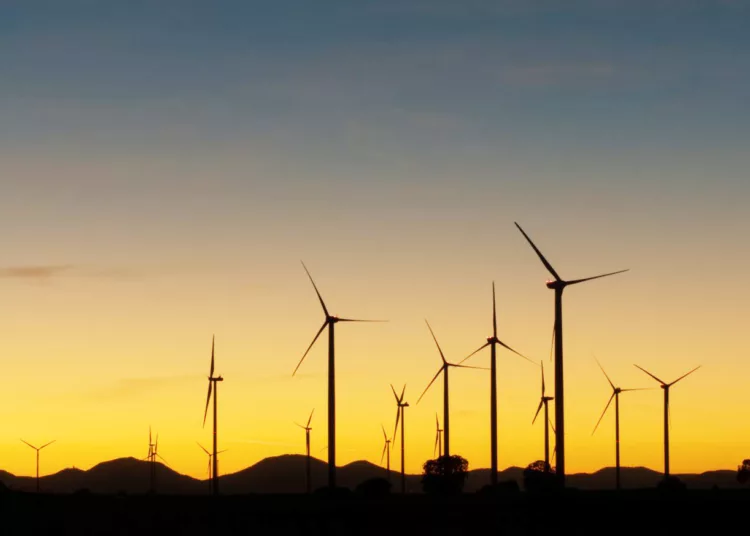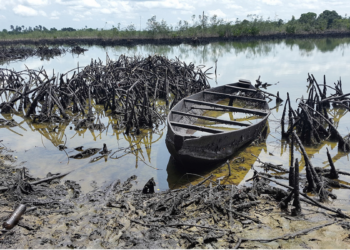The private sector in Nigeria is expecting a bourgeoning deal as the federal government expands investment opportunities in its Energy Transition Plan.
The plan has identified initial $23 billion investment opportunity across a portfolio of projects.
Under the plan, $17 billion is estimated as funding required through the private sector, across generation, transmission, distribution, metering, gas commercialization, clean cooking, e-mobility, and healthcare.
The Energy Transition initiative is specifically designed to tackle the dual crises of energy poverty and climate change and reach net-zero status by 2060, while also providing energy for development, industrialisation, and economic growth.
In an interactive session on opportunities and challenges in Nigeria’s Energy Transition Plan, in Lagos experts are of the opinion that to deliver net-zero target by 2060, Nigeria requires ~$410 billion above business-as-usual spending (between 2021 – 2060); $150 billion net spend on generation capacity, $135 billion on transmission and distribution infrastructure, $79 billion on cooking, $21 billion on industry, $12 billion on transport and $12 billion on oil and gas decarbonisation.
To help consolidate efforts towards energy transition, a private sector-focused roundtable was convened which discussed the role of the organized private sector in the country’s Energy Transition Plan, and how to chart a path forward.
Organised by the Energy Transition Office who are funded by Sustainable Energy for ALL (SEforALL) and Global Energy Alliance for People and Planet, the meeting brought together stakeholders from the private sector and government to discuss the challenges and opportunities available in Nigeria’s Energy Transition Plan.
With the help of private sector actors, the group will work to develop an implementation framework that will enable Nigeria achieve the financing objectives of the ETP.
Lanre Shasore, Senior Special Assistant, SSA to the President on Planning and Coordination, set the pace for the meeting by giving a brief history of the Energy Transition Plan.
This was followed by the welcome remarks from Dr. Muntaqa Umar-Sadiq, Head/Principal Finance Specialist at the Energy Transition Office. He highlighted that the ETP lays out a comprehensive roadmap for Nigeria’s energy transition, and emphasised the need for private sector engagement in the form of co-creation and alignment to raise the funds required to achieve the country’s net zero goal by 2060. This crucial role he believes, will help the government overcome bottlenecks and mobilise the necessary resources.
Various players from the energy, finance and legal sectors participated in the meeting, as well as other experts who shared their insights and experiences on the challenges and opportunities presented by the energy transition.
The interactive session on Investment Opportunities in the Nigerian Energy Transition Plan featured at the roundtable.
The session was moderated by Tariye Gbadegesin, CEO, ARM-Harith Infrastructure Fund. Tariye guided the participants in approaching the Energy Transition agenda from a bottom-up perspective, focusing on sectorial themes such as power, transport, gas transition, manufacturing, and transmission.
As part of the discourse, participants highlighted the need for innovative financing models and the role of public-private partnerships in recognising value chains across verticals. In line with this commitment, a private sector working group was formed to support energy transition in the country.
The group, which will leverage its expertise and network, will help mobilise funds and promote innovative financing models that can accelerate the adoption of renewable energy technologies.
After considerable deliberations and constructive dialogue, Somkele Awa-Kalu emphasised the ETO’s openness to collaboration, which was also echoed by Dr. Muntaqa Umar-Sadiq, Head of the ETO. Dr. Umar-Sadiq recommended that the Private Sector Working Group meet virtually on a monthly basis and hold physical meetings quarterly.
Speakers and attendees included Ahmad Salihijo, MD of Rural Electrification Agency, Chinua Azubike, CEO of Infracredit, Victor Adamu, TA to the President on Infrastructure, Hakeem Shagaya of Sun Africa, Nana Maidugu, Head of ESG at Nigerian Sovereign Investment Authority, Sola Carrena of Helios Investment, Tunde Gbajumo (Chief of Party, Power Africa), Banjo Alimi, Ayo Falola and Seyi Okunnuga of Sterling Bank, Dr. Uzo Egbuche of Climate Finance Accelerator, Muhammad Wakil of GEAPP, Joshua Adedeji of Innovate UK-KTN and Yemisi Awonuga, Partner at Templars Law, among other key stakeholders.
Throughout the meeting, these speakers highlighted the importance of collaboration between the public and private sectors, as well as the need to leverage innovative financing mechanisms to mobilise investment that will help drive energy transition in Nigeria.
Meanwhile, at the Middle East Energy, a leading energy industry event in the MEA region, made its anticipated return to Dubai World Trade Centre on 7 – 9 March 2023 to guide energy transition conversations across the globe, boldly discussed Nigeria’s Energy Transition initiative.
Enjoying a 45-year legacy, this year’s edition focused on guiding energy transition across Africa and the Middle East.
It brought together buyers and sellers from across different countries to explore the latest advancements in energy products and solutions and will also feature strategic conferences and content arenas to uncover solutions to some of the most pressing challenges posed by the energy transition.
One of this year’s panel sessions titled: Perspectives from Nigeria on the Energy Transition, discussed on the unique opportunity to merge economic development and climate action priorities in Nigeria, Africa’s largest economy, one of the world’s first true just transitions.
The federal government has been pushing to attract investment into the gas sector, which is key to its energy transition plan.
But spend on new projects has been limited in recent years, then only big-ticket project to get the greenlight is the Anoh project, operated by Shell and NNPC subsidiary Seplat. Other critical gas projects targeting the domestic market have yet to move forward.
On the export front, Nigeria LNG (NLNG) has been running below its nameplate capacity and missed the opportunity to fully capitalise on unprecedented gas prices in Europe in 2022.
Shell has been the dominant supplier to NLNG and the domestic market, but with the Anglo-Dutch major looking to sell its entire onshore and shallow-water JV portfolio, it has not sanctioned any new Greenfield gas projects. Italy’s Eni is another key gas supplier, but it also has not committed to any new projects.
The improved fiscal regime brought in by the Petroleum Industry Act, PIA has not translated to a flow of investment.
Experts said that incoming administration will need to work out a plan to change this, with tweaks to the PIA potentially required.
A shake-up of the upstream corporate landscape should be given priority and the entry of competent players could kickstart the flow of investment.
Also, the Nigerian independents have been the obvious buyers from the majors, but the country needs to attract other brownfield experts with access to capital that can complement the efforts of the independents and unlock incremental value from mature fields.
In the deepwater sector, attracting other capable International Oil Companies (IOCs) outside of the majors with deep pockets and technical capabilities should be prioritised, experts declared.
















